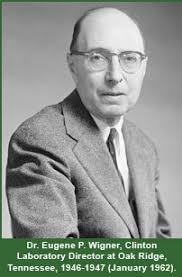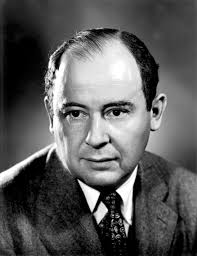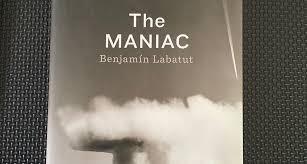Another thought on how steep the pyramid is, on how important it is to communicate to our children that competition is debilitating, that how they feel about their accomplishments matters significantly more than what those accomplishments might actually be. Here is Eugene Wigner (fictionalized account) on one of his elementary school classmates:
“It was a burden growing up so close to him. I often wonder if my horrific inferiority complex, which not even the Nobel Prize has diminished in the slightest, is a product of having known von Neumann for the better part of my life.”
A Nobel Prize winner owning an “horrific inferiority complex.” Hmm. I mentioned recently that your child will not best Kelvin Kiptum’s world marathon record of two hours, zero minutes, 34 seconds. Would it also be fair to observe that if your child could not divide eight-digit numbers together in their head by age seven that they will not surpass this Hungarian who could do those calculations by the time he was six.
What’s 27182818 divided by 9788917? I don’t know either, but Von Neumann could tell you—instantaneously—at an age when most children are, at best, learning what three times two is. Here is another fabricated recollection of Eugene Wigner from Benjamin Labatut’s lovely volume, The Maniac. The only backstory needed is that Max Planck got a Nobel Prize in physics and has a scientific institute named for him. Max Von Laue has a Nobel Prize in physics. So does Werner Heisenberg. So does Paul Dirac. Neither Edward Teller nor Leo Szilard won the Nobel in physics although both worked on the Manhattan Project. Albert Einstein did not work on the Manhattan Project but did win a Nobel Prize in physics and is generally regarded as a competent thinker.
“I have known a great many intelligent people in my life. I knew Planck, von Laue, and Heisenberg. Paul Dirac was my brother-in-law, Leo Szilard and Edward Teller have been among my closest friends, and Albert Einstein was a good friend too. But none of them had a mind as quick and acute as Janos von Neumann. I remarked on this in the presence of those men, several times, and no one ever disputed me.”
Labatut’s book is neither fiction nor historical fiction although his “quotes” included here the product of his wonderful creativity. What is accurately reported are Von Neumann’s abilities. You don’t have to understand how complicated making the first nuclear weapon was–I don’t understand it either but I’m thinking “complicated” might be a good place to start–to appreciate Von Neumann’s being a human calculator. Speaking as someone who has only mastered one digit division, that stuff about dividing eight digit numbers in his head just knocks me out.
What else is there to say about Von Neumann? Again, from The Maniac: “When cancer spread to his brain and began to destroy his mind, he was sequestered by the United States military and confined to the Walter Reed Army Medical Center. Two armed guards stood outside his door. No one was allowed to see him without express permission from the Pentagon. An Air Force colonel and eight airmen with top secret clearance were assigned to assist him full-time, even though there were days he could do nothing but rage like a madman. He was a fifty-three-year-old Jewish mathematician who had emigrated from Hungary to America in 1937, and yet at his bedside, hanging on his every word, sat Rear Admiral Lewis Strauss, Chairman of the Atomic Energy Commission; the Secretary of Defense; the Deputy Secretary of Defense; the Secretaries of Air, Army, and Navy; and the military Chiefs of Staff—all waiting for a final spark, one more idea from the individual who had birthed the modern computer, laid down the mathematical foundations of quantum mechanics, written the equations for the implosion of the atomic bomb, fathered the Theory of Games and Economic Behavior, heralded the arrival of digital life, self-reproducing machines, artificial intelligence, and the technological singularity, and promised them godlike control over the Earth’s climate, now wasting away before their eyes, screaming in agony, lost in delirium, dying, just like any other man.”
So, at the risk of being the least little bit macabre, I have to point out that nobody gets out of here alive. Von Neumann is said to have remarked on his deathbed that, given his gifts, he should have accomplished more. Kinda depressing, gotta say, given he invented entirely new branches of mathematics. Von Neumann died in 1957, the year before I was born. I like to think he got some enjoyment, some sense of the enormity of his contribution, that he appreciated being—arguably—the smartest person who ever lived.
I wish nothing less for your beloved children, even if they never run a two-hour marathon or win a Nobel Prize in physics. I hope your kids enjoy every precious day—even if they never learn to divide eight digit numbers in their head.






